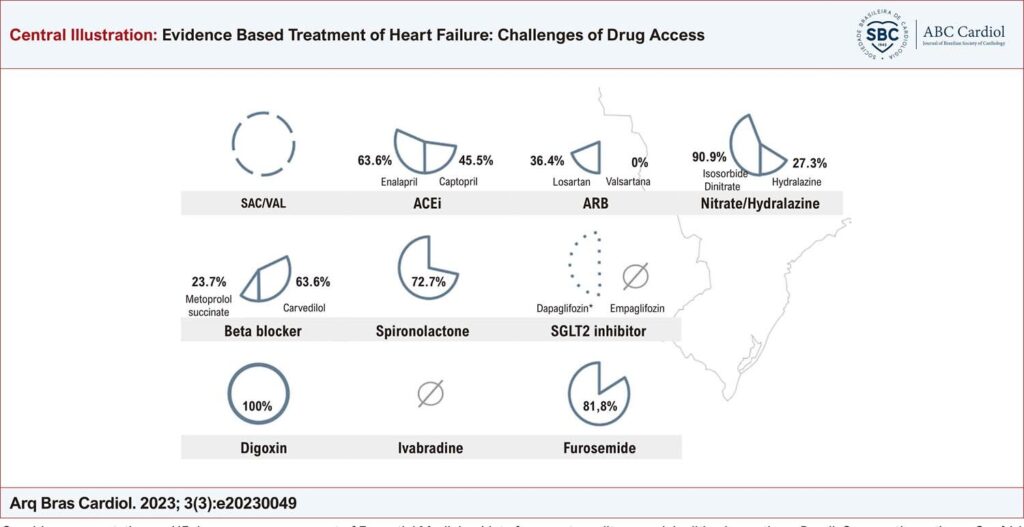ABC Heart Fail Cardiomyop 2023; 3(3): e20230049
Evidence Based Treatment of Heart Failure: Challenges of Drug Access
Abstract
Heart failure (HF) is a complex clinical syndrome with high prevalence, significant morbi-mortality and is the leading cause of hospital admissions of Brazilian patients over 65 years of age. Drug therapy plays a key role in the care of HF patients, aimed to control symptoms, improve functional classification, reduce hospital readmissions and HF-related mortality rates. Despite the evidence of drug therapy proven benefits in HF, their access through the Unified Health System (Sistema Único de Saúde, SUS) remains unexplored. The present study aims to analyze the dynamics of access to HF therapy, based on the list of drugs made available by the SUS through a descriptive and documental methodology. Data were collected from the Municipal Lists of Essential Medicines in a metropolitan region in southern Brazil. Municipalities with a population over 80,000 inhabitants were included, and the respective lists of available drugs were reachable electronically by the health departments themselves. The results showed a partial access to HF treatment via the SUS, especially spironolactone and furosemide, present in 72.7% and 81.8% of the municipalities, respectively. Although drug treatment for HF has proven a high level of evidence, access via SUS represents a challenge to overcome in the continuum of care of patients with heart failure in Brazil
559


